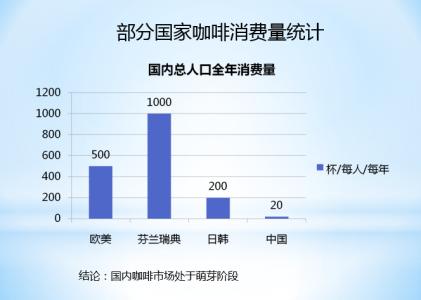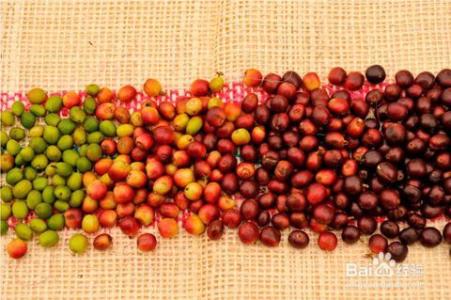Cambodian civet coffee brand origin price
Cambodian civet coffee brand origin price
After cleaning, it goes into the air-drying and baking process, and then stores it. The longer you put it, the darker the color of the coffee beans will be due to oil production, oxidation and other reasons. The reporter also tasted coffee beans in different periods of time on the coconut candy scene, and the taste was indeed slightly different.
Asked if her products were exported to China, Mery told reporters that her products are currently sold in China and are not exported for the time being. However, there are also customers in other countries, including Canada and Japan, who never forget after tasting. Although she does not provide export services, she can mail products. For many coffee lovers, the high price of Kopi Luwak is prohibitive. In Indonesia, the price of the coffee is not sighing. In this store, the price of a pack of 100 grams of instant coffee powder is about 175 yuan.
Data show that at the 2010 Shanghai World Expo, a cup of coffee made from 12 grams of cat poop coffee powder from Indonesian companies sold for 380 yuan, a daily limit of 12 cups in short supply. A kilogram of cat poop coffee beans costs as much as $1200 in the US, while a cup of Kopi Luwak in the UK costs about £50.
There are all kinds of inhumane claims about Kopi Luwak on the Internet, but among the communicators have ignored an important fact, this is human fault, and it is the fault of the villain, has nothing to do with Kopi Luwak. It is a very interesting fact that civets use their natural sense of smell to help people choose delicious coffee beans in the jungle and become workers voluntarily. But some people keep civets in captivity and turn them into commodities. The two are not related, and people who oppose Kopi Luwak had better figure out what they oppose first. Is it against the villains? Still against cats eating coffee. :)
In the workshop, the delegation saw the civet. Compared to ordinary cats, they look more like little raccoons and look very gentle and lovely. Workshop owner Mery told members of the delegation that civets usually sleep during the day and are more active at night. Their main foods are plant fruits, insects and small beasts, but coffee fruit is one of their favorite foods, and they choose the most ripe, sweet, juicy fruits in coffee trees. They have a very keen sense of smell and only eat high-quality coffee fruits, and the rest will be abandoned by them automatically.
In fact, the only thing that civets like to eat is the flesh of coffee. When the fruit passes through the digestive system of civets, only the pulp on the outside of the fruit is digested, and the core coffee beans are discharged intact. The coffee beans fermented in the stomach have a different taste. When the coffee beans are discharged, the formal processing process begins. First of all, you have to wash the coffee beans many times to make sure the coffee beans are completely clean. Then peel off the shell wrapped in the surface of the coffee bean.
According to the workshop owner, this peeling process is generally done manually, on the one hand, because it is easy to damage the coffee bean itself, and on the other hand, because the machine treatment will destroy the original taste of the coffee bean, and ultimately affect the quality and taste of the coffee. And the peeled shell can also be used to make pillows. After completing this link, we will enter the cleaning link again. There is a special coffee bean cleaning machine in the store. Under normal circumstances, a batch of coffee beans need to be cleaned for about 2 hours.

Important Notice :
前街咖啡 FrontStreet Coffee has moved to new addredd:
FrontStreet Coffee Address: 315,Donghua East Road,GuangZhou
Tel:020 38364473
- Prev

Why coffee beans at high altitude taste better
Why is the flavor of coffee beans at high altitude better? the rating of Central American coffee is based on the altitude of coffee growth in Mexico, Honduras, Haiti and other countries according to the height of Strictly High Grown (extremely high mountain beans, referred to as SHG), followed by High Grown (mountain beans, referred to as HG) Mexico called Altura, which means high in Spanish, indicating that it is high.
- Next

Can Manning cook it in a siphon pot?-siphon pot coffee making tutorial video
Can Mantenin be brewed in a siphon pot-siphon pot coffee course video Mantenin's leaping micro-acid is mixed with the richest aroma, allowing you to easily taste the lively factor in the mild fragrance. Its extraordinary taste has confused many suitors. Manning coffee is considered to be the most mellow coffee in the world, and you can feel the obvious moisture on the tip of your tongue when tasting Mantenin.
Related
- What brand of black coffee is the most authentic and delicious? what are the characteristics of the flavor of the authentic Rose Summer Black Coffee?
- Introduction to the principle and characteristics of the correct use of mocha pot A detailed course of mocha pot brewing coffee is described in five steps.
- Which is better, decaf or regular coffee? how is decaf made?
- How much is a bag of four cat coffee?
- How about four Cat Coffee or Nestle Coffee? why is it a cheap scam?
- Which is better, Yunnan four Cats Coffee or Nestle Coffee? How about cat coffee? is it a fake scam? why is it so cheap?
- How about Cat Coffee? what grade is a hoax? which instant coffee tastes better, four Cat Coffee, Nestle Coffee or G7 coffee?
- Process flow chart of coffee making-Starbucks coffee making process what coffee tastes good at Starbucks
- The top ten best coffee beans in the world Rose summer coffee or Tanzanian coffee tastes good
- Yunnan four cat coffee is good to drink?_four cat coffee is a big brand? four cat blue mountain coffee is fake?

